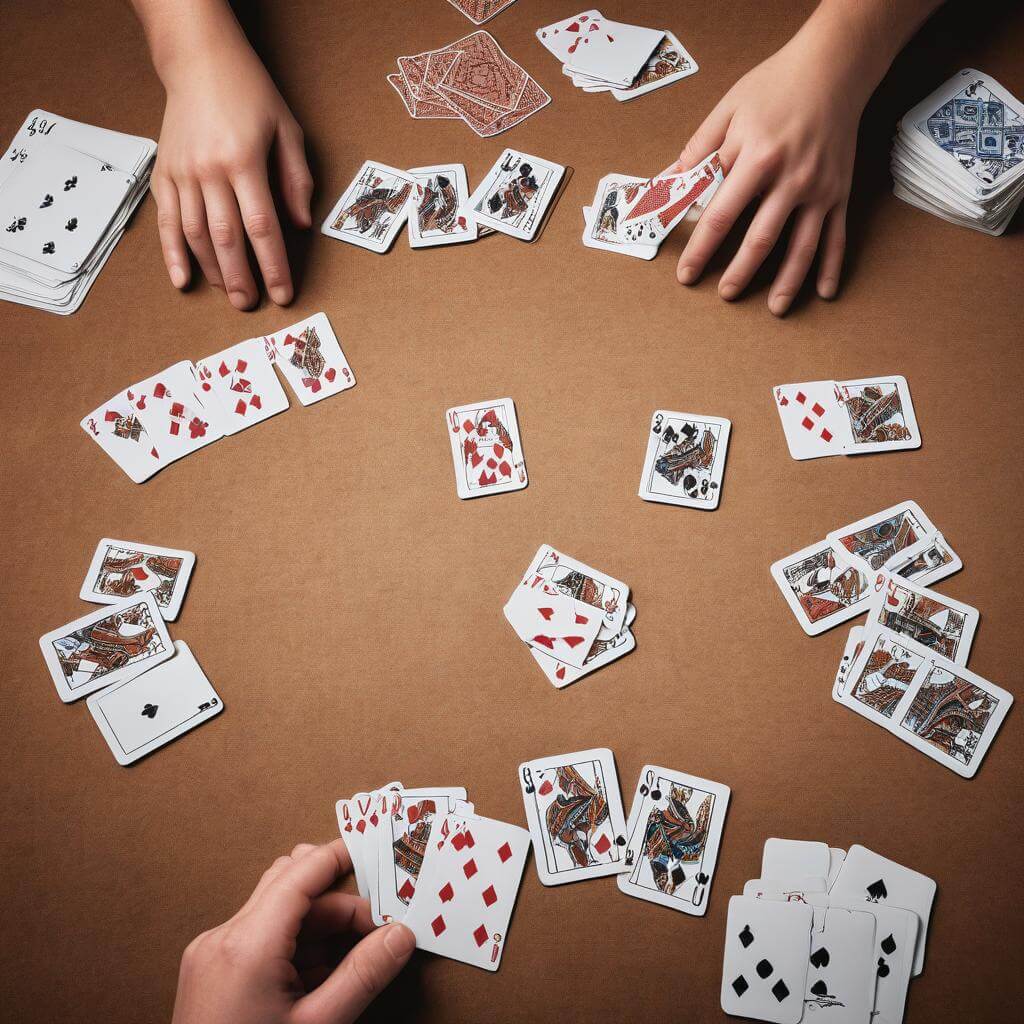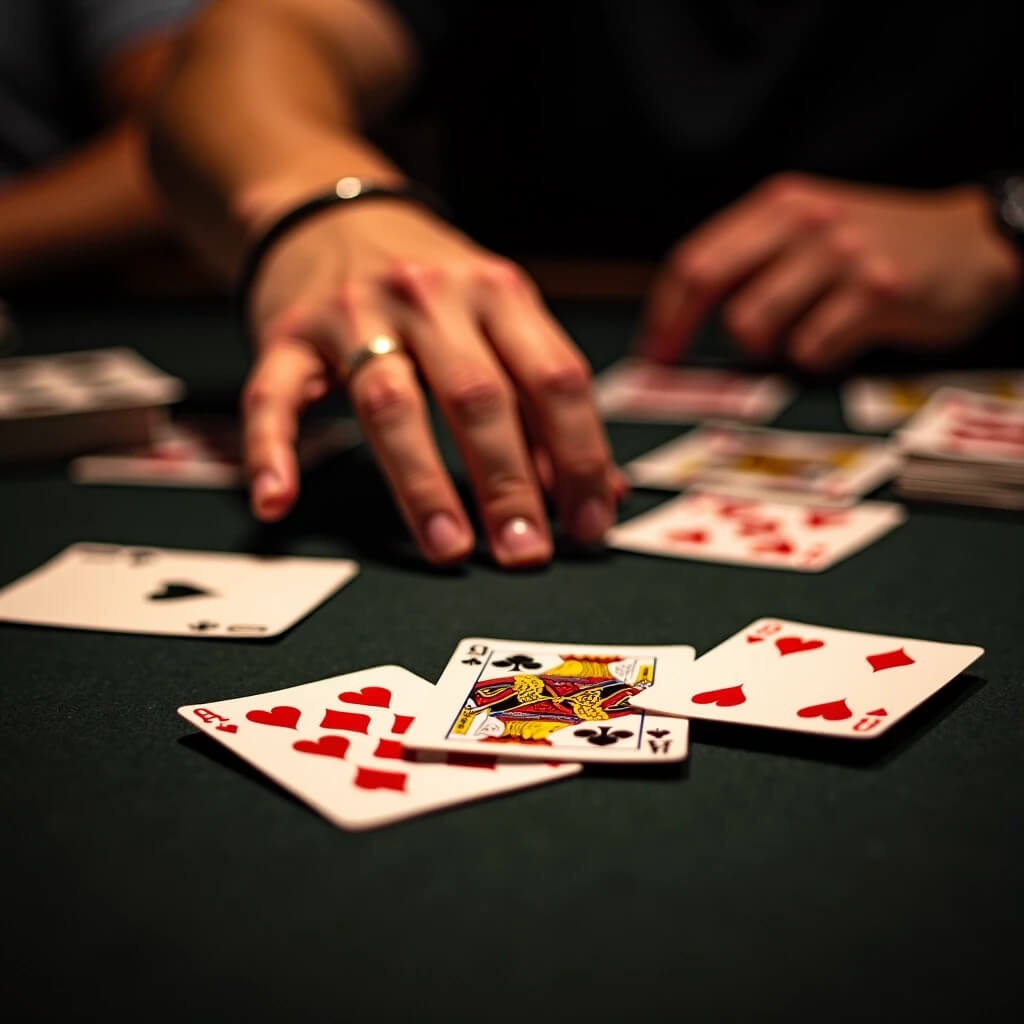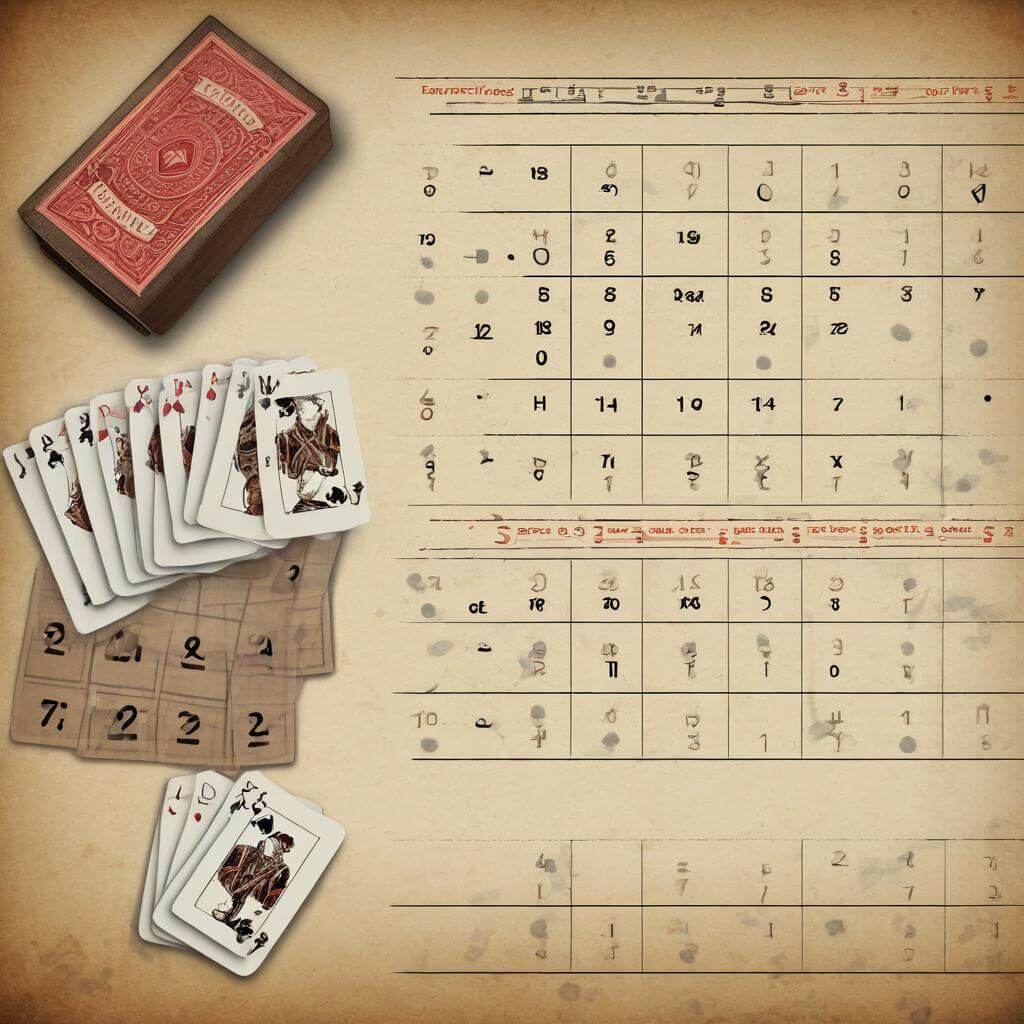Rules of Rummy
Master the game with these detailed rules. Rummy is all about skill—learn how to play strategically and win!
Objective
Rummys primary objective is to be the first player to arrange all 13 of your cards into sets and sequences that make sense showcasing your strategic prowess. A set of three or four cards with the same rank but different suits like 7♠ 7♥ 7♣ or 8♦ 8♠ 8♥ 8♣ requires careful attention to detail in order to collect matching cards. On the other hand a sequence consists of three or more consecutive cards of the same suit such as 4♦ 5♦ 6♦ or 9♥ 10♥ J♥. Successfully arranging your hand requires careful planning. Rummy is an intellectual game where winning rests solely on your ability to evaluate your cards anticipate your opponents moves and modify your strategy as the game goes on. You must have every card melded including at least one pure sequence (free of jokers) in order to declare a win. This requirement tests your ability to set priorities. If you have 5♦ 6♠ 7♠ and 10♦ 10♥ 10♣ for example youre close but incomplete melds wont work. Because making snap decisions can result in unmelded cards and a higher point total the game rewards patience and foresight. To become proficient at Rummy you must understand that each card you choose or discard affects your chances of winning making it a true test of your ability to think strategically and with mental acuity.


Card Setup
A standard 52-card deck is used for rummy and two to six players can start with a hand of thirteen cards each. In order to establish a game that is based on skill and strategy the dealer deals the cards one at a time in a clockwise direction after carefully shuffling the deck to guarantee fairness. After the cards are dealt the remaining cards are arranged in the draw pile face down in the middle of the table giving players the materials they need to construct their melds. The discard pile is then created by turning one card face up next to the draw pile giving players a quick strategic choice: should they draw blindly from the pile or take the face-up card? Jokers if they are used act as wild cards replacing any card in a set or sequence giving the game a flexible and strategic element. A Joker can for instance execute a sequence like 3♠ 4♠ Joker which offers versatility but necessitates careful preparation. All 52 cards are dealt out at the beginning of a 4-player game so there are no cards left in the draw pile. However larger groups can use additional decks. Setup is a critical stage in which you assess your hand (e. g. 5♥ 6♥ 8♣ 9♦) and start planning your melds. Gaining an early advantage over your competitors requires knowing how to maximize this first arrangement.
Gameplay
Each player takes turns strategically honing their hand through careful card management as the game moves clockwise. When it is your turn you draw one card and can either reveal or conceal your strategy by selecting from the face-down draw pile or the face-up discard pile. You may use this move to mislead your opponents or to indicate your intentions after drawing. You discard one card from your hand to the discard pile. Your main objective is to arrange your thirteen cards into legitimate melds or sets and sequences that satisfy the rules of the game. This is a difficult task that calls for constant planning and evaluation. Your entire hand including at least one pure sequence (e) must be melded in order to be declared a winner. G. without the use of jokers demonstrating your capacity for efficient prioritization (7♦ 8♦ 9♦). You are making a strategic move for example if you draw a 6♠ to finish a sequence like 4♠ 5♠ 6♠ and discard an unnecessary 2♣. A player who declares too soon may have unmelded cards and a player who waits too long may win first. Timing is everything. You can deduce your opponents sequences and modify your strategy by keeping an eye on the discard pile. For example you can see that they discard a 10♥ after you discard a 9♥. Rummy requires quick thinking and flexibility because each turn affects the result of the game. Rummys skill-based nature is highlighted by the dynamic interplay between drawing and discarding which rewards players who can anticipate moves.


Scoring
In its landmark rulings the Indian Supreme Court has affirmed that rummy is a skill-based game setting it apart from games of chance that rely more on luck than cunning. The focus on strategy memory and decision-making in rummy—players need to carefully plan their moves keep an eye on their opponents moves and adjust their tactics to succeed—is what made the game legally recognized and confirmed its status as a legitimate and respectable pastime in India. In contrast to games that are decided by chance rummy greatly benefits from strategic and skillful play which is consistent with our platforms objective of prioritizing skill over chance. At Rummy Strategy Game we strictly abstain from all real-money gambling in order to fully adhere to Indian regulations. Instead we focus solely on the strategic and mental challenges of the game. Because we are committed to legality every match is a fair test of skill without any financial stakes that might jeopardize the integrity of skill-based gameplay. Nevertheless because of particular state laws we respect regional legal frameworks by not providing our services in Andhra Pradesh Assam Nagaland Odisha Sikkim and Telangana. We provide players on our platform with clear guidelines and educational resources regarding the legal status of rummy in an effort to foster transparency and trust. By adhering to these guidelines we create a safe and authorized environment where players can confidently benefit from Rummys extensive background and sophisticated ideas.
Tips for Success
The first step in learning Rummy is to concentrate on producing a pure sequence (e. g. A. Prioritize it above all else because it is crucial for declaring and establishes the framework for your plan (5♠ 6♠ 7♠). Keep a close eye on the discard pile because if your opponent throws a 9♦ it could mean they are working on a sequence like 10♦ J♦ which would allow you to stop them in their tracks by keeping the Q♦. Since high-value cards like Kings and Queens have a 10-point value and can greatly raise your score if left unmelded try to meld them early in the game. Dont use Jokers for simple 3-card sets instead save them for more intricate melds. For example using a Joker as 5♥ can turn 4♥ 6♥ into a sequence. Maintaining a card for too long could result in you missing a vital meld but discarding too soon can give opponents a sneak peek at your strategy. Be adaptable change your plan if the draw pile presents better chances. For example go from a set like 7♣ 7♦ to a sequence like 7♣ 8♣ 9♣. To simplify your hand throw out a 2♠ early if you have no possible matches. This is a skill-based game where every choice counts so prepare ahead of time watch your opponents and improve your strategy every time. With the help of these tactics which are focused on timing observation and cunning play novice Rummy players can become proficient.
